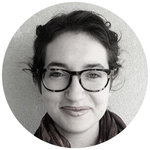
Andrew Yang Believes in New York and Himself. Is That Enough?
Mr. Yang has brought political star power and a dose of optimism to the New York City mayor’s race. But his gaps in knowledge about how the city functions have led to the perception among critics that he is out of his depth.
The New York City mayoral race is one of the most consequential political contests in a generation, with immense challenges awaiting the winner. This is the fifth in a series of profiles of the major candidates.
By Dana Rubinstein and Katie Glueck
As Andrew Yang approached the corner store in Manhattan, a cameraperson in tow, the setting seemed familiar. It couldn’t be that bodega — the place he visited in the infancy of his mayoral campaign, the place that brought him ridicule because it wasn’t really a bodega in the New York sense, with its bright lights, wide aisles and well-stocked shelves.
Oh, but it was. Mr. Yang had returned to the scene of an early campaign crisis, a place that was to be a simple backdrop for a seemingly innocuous tweet in January in support of bodegas. Instead, New Yorkers questioned his knowledge and authenticity — a hint of the criticism that would follow many of his quick takes on matters both substantive and light.
Mr. Yang was unfazed, then and now. He entered the 7 Brothers Famous Deli in Hell’s Kitchen, greeted the workers like they were old friends, and repeated his order from his first visit: green tea and a handful of bananas.
“Just like the old days,” he said, before affixing a campaign poster to the storefront window.
With less than one month to go before a Democratic primary that will almost certainly determine the next mayor of New York City, Mr. Yang’s off-the-cuff, can-do persona has fueled his candidacy in a city just emerging from the pandemic.
His failed bid for the 2020 Democratic presidential nomination brought national focus to universal basic income, and gave him instant name recognition, good will and political star power in the New York City contest.
But Mr. Yang’s apparent eagerness to please, his willingness to make unorthodox, sometimes spontaneous policy pronouncements, his lack of experience with New York City politics and gaps in knowledge about how the city works have all contributed to the perception among critics that he is out of his depth — underscoring his potential weakness as a mayoral candidate.
For Mr. Yang, his front-runner status in the New York City mayoral race has taken some getting used to. In private conversations this year, he has come across as supremely confident about his chances. But he can also seem taken aback by the increasingly sharp criticism he attracts.
“I’m frankly a bit more accustomed to being the, like, the scrappy underdog —that was sort of a more natural posture for me,” he said in an interview this spring.
He seemed, at the outset of the race, to satisfy some New Yorkers’ psychic needs. But in the final weeks before the June 22 primary, as the city reawakens, the race’s dynamics have changed. Polls have tightened, voters are paying more attention, and well-funded competitors are spending millions on television, threatening a victory that once seemed well within Mr. Yang’s grasp.
An affinity for the underdog
Mr. Yang was born 46 years ago to Taiwanese immigrants living in Schenectady, N.Y., then known as Electric City, presumably for the central role that his father’s employer, General Electric, played in its economy. When he was four, his family moved from a home there with a green shag carpet to Westchester County.
His parents were both technologically oriented: His father worked at I.B.M.; his mother, who had a master’s degree in statistics, worked for the State University of New York at Purchase as the director of computer services, before becoming an artist.
Mr. Yang recalled a relatively homogeneous upbringing: In his middle school class in Somers, N.Y., he remembered one other East Asian student, a girl.
“Everyone said we should date, which made neither of us very happy,” said Mr. Yang, who would be New York’s first Asian American mayor.
Some of his classmates were cruel, calling him racist slurs and making jokes about his eyes. Having skipped kindergarten, he trailed his classmates in size. His voice changed later than theirs did.
The experience, he said, gave him an affinity for the underdog, and left lasting wounds.
“I’ve never forgotten what it felt like to be young,” he wrote in his 2018 book, “The War on Normal People.” “To be gnawed at by doubts and fears so deep that they inflict physical pain, a sense of nausea deep in your stomach. To feel like an alien, to be ignored or ridiculed.”
Today, Mr. Yang often comes across to voters as exuberant. But he describes himself as “naturally introverted,” and in person, that energy comes across as a switch that can flip on and off. Out of the spotlight he can seem low-key, even occasionally withdrawn.
Mr. Yang thrived academically, and halfway through high school he transferred to Phillips Exeter Academy, a selective boarding school in New Hampshire, the first in a succession of elite institutions that would lead him down the path to corporate law: Brown University, Columbia Law School and a junior position at Davis Polk & Wardwell, the elite New York law firm that he quit after five months.
The work was grueling — and when his officemate, Jonathan Philips, broached the idea of a start-up, Mr. Yang was intrigued, Mr. Philips recalled.
“It’s like he all of a sudden woke up,” Mr. Philips, now a North Carolina-based investor, said, recalling long conversations about “the intersection of economic and social betterment.”
They co-founded Stargiving, a company designed to help celebrities fund-raise for charities. There, Mr. Yang pitched and hobnobbed with powerful people and practiced dealing with the news media.
Still, Mr. Yang has acknowledged, the initiative “failed spectacularly.”
He moved on to other endeavors, including a party-hosting business and a position at a health care company, before landing at a test-prep company, later called Manhattan Prep, that was run by a friend. He eventually became its C.E.O. and acquired an ownership stake.
When Kaplan, the test-prep giant, bought the company, Mr. Yang walked away with a seven-figure prize.
But he has said he was disenchanted by the career track enabled by the test prep company, which funneled promising students to business school and then Wall Street.
Still eager to make his mark on the world, he founded Venture for America, a nonprofit that aimed to deploy recent graduates to work at start-ups and start companies in struggling cities across the country. Venture for America was a seminal chapter in Mr. Yang’s life, introducing him to the national stage and shaping his image as an entrepreneur.
The results were mixed. Mr. Yang set out to create 100,000 jobs, but only about 150 people now work at companies founded by alumni in the cities the nonprofit targeted, a New York Times investigation found. The program also faced accusations of bias under his leadership. Mr. Yang has defended his tenure there.
Mr. Yang ultimately left the organization to run for president and write the book that became the foundation for his campaign, in which he warned of the dangers posed by automation and laid out his universal basic income proposal.
Mr. Yang’s presidential bid stunned many people who had worked with him and knew him as a smart and relatable nonprofit leader, but certainly not as a practiced politician. In a field studded with governors, senators and the former vice president of the United States, Mr. Yang was a political outsider who had never run, let alone won a campaign of his own, and the bid was quixotic from the start.
Mr. Yang’s campaign was never especially polished — juvenile hijinks were occasionally caught on camera — and he dropped out on the night of the New Hampshire primary. Yet he proved to be a strong fund-raiser, and his campaign lasted longer than those of several far more seasoned contenders, including Senator Kirsten Gillibrand of New York, former Gov. Steve Bullock of Montana and now-Vice President Kamala Harris.
He campaigned on the notion that the federal government should give every American citizen $1,000 a month in no-strings-attached cash. To some voters, it was a compelling vision delivered by a steadfastly upbeat campaigner, and it earned Mr. Yang a loyal following.
Now, instead of a guaranteed monthly income for all New Yorkers, he is calling for a $2,000-a-year payment to 500,000 of the city’s poorest residents, a sum one of his opponents has said amounts to “U.B. Lie.” He has yet to clearly delineate how he will pay for it.
If Mr. Yang’s campaigns have been premised on the promise of restoring humanity to government — his first television ad in the mayor’s race was called “Hope” — his call for a basic income reflects a darker understanding of history and human nature.
The central argument behind his initial proposal was that technology was rendering much human labor obsolete — the “Great Displacement,” he calls it — and that the United States will descend into Hobbesian lawlessness without some form of guaranteed cash.
In his book, he ruminates about how the violence might begin, and how the ruling class might react in ways that further cement the divide between the haves and have-nots.
“One can imagine a single well-publicized kidnapping or random heinous act against a child of the privileged class leading to bodyguards, bulletproof cars, embedded safety chips in children, and other measures,” he wrote in 2018.
Mr. Yang’s visions of an imminent descent into anarchy do not play much of a role in his mayoral campaign, and the language in his book is a sharp departure in substance and tone from his often-buoyant New York appearances.
More than anything, he is running as the big-thinking optimistic candidate from outside the sclerotic political ecosystem, arguing that he alone has the magnetic personality and coalition-building skills to galvanize New York City’s economy, bring back tourists and remake government.
As mayor, he says he would turn an old rail line in Queens into a park; build and preserve 250,000 units of affordable housing; and create a 10,000-person corps of recent college graduates to tutor students whose learning has been impacted by the pandemic.
As he bounces from one event to the next, celebrating the return of sporting events and reopening of movie theaters, he has cast himself as New York’s cheerleader.
“I reject the notion that you have to be a creature of the political establishment to be a real New Yorker or an effective mayor,” said Representative Ritchie Torres, a New York Democrat and an early Yang backer, whose district — the poorest in the country — would stand to benefit from Mr. Yang’s guaranteed income proposal. “He’s enlivened the mayor’s race with the sheer force of his personality.”
‘Can you imagine?’
Mr. Yang’s entry into the New York political scene was turbulent.
He sparked controversy for spending parts of the pandemic with his wife, Evelyn, and their two young sons at their home in New Paltz (“Can you imagine trying to have two kids on virtual school in a two-bedroom apartment?” he asked, in a remark that was widely seen as tone-deaf.). He acknowledged he had never voted for mayor before.








